When is the best time to rent your property?
If you are going to be renting a property in Malta in 2025, you will need to have a fair understanding of the evolving regulations, market dynamics and socio-economic factors that influence rentals. This article delves into the latest trends and essential considerations for prospective tenants (and landlords!) who are considering renting or letting a property very soon on Malta or Gozo.
Regulatory Reforms in Malta
Malta has introduced significant legislative improvements to create a fair and stable rental market. The latest amendments to the Private Residential Leases Act, effective from 1 September 2024, bring new measures to enhance living standards and ensure a seamless renting experience. One of the standout changes is the implementation of occupancy limits based on the landlord’s declaration at contract registration. For example, a two-bedroom residence is designed for up to four occupants, while a three-bedroom home can accommodate up to six. These guidelines promote comfortable and high-quality living environments.
Additionally, the government has extended the rental agreement registration period from 10 to 30 days, making the process more convenient and efficient. With the Housing Authority overseeing compliance and ensuring transparency, both landlords and tenants can enjoy a well-regulated and supportive rental framework.
Do not forget that Frank Salt Real Estate can do the registration of your property as a landlord! Simply go to this page, fill in the details and we will get in contact with you quickly.

Market Trends in Malta
The Maltese property market has experienced notable growth, with housing prices rising by 6.9% in the fourth quarter of 2024 compared to the same period in 2023. This increase nearly doubles the average growth rate across the EU, indicating that there is a healthy demand for housing on the islands.
Worth Knowing: EU-Wide Rental Market Developments
Across the EU, rental markets are undergoing transformations influenced by policy changes and shifting economic conditions. Several countries, including Spain and Portugal, have recently discontinued their golden visa programs amid criticisms that they contribute to housing unaffordability and inflate property prices. This policy shift reflects a growing emphasis on ensuring housing accessibility for local populations and mitigating speculative investments that drive up costs. Spain has even suggested introducing a double tax for all new non-EU homeowners but how and if this will become law remains to be seen.
In stark contrast, countries like Greece and Malta continue to offer visa programs that attract foreign investors seeking residency through property purchases and rentals.
In Malta the influencing factors having an impact on rentals are:
- Strong Demand in Prime Locations – With Malta’s limited land area and high desirability, places like Sliema, St. Julian’s and Valletta remain sought-after rental hotspots.
- Growing Expat Community – The booming i-Gaming, finance and technology industries attract a vibrant international workforce, enhancing the rental market’s vitality.
- Tourism & Short-Term Rentals – Malta’s tourism appeal means that many properties are available for short-term stays, creating diverse rental options.
- A Robust Economy & Infrastructure Development – The nation’s expanding infrastructure, economic incentives and residency programs make it an attractive place to live and work.
Key Considerations for Prospective Tenants
- Understanding Local Regulations: Familiarise yourself with the specific rental laws and regulations in your desired location. In Malta, for example, recent legislative changes have introduced occupancy limits and extended registration periods for rental agreements. Being aware of these rules can help you avoid legal pitfalls and ensure a compliant renting experience.
- Assessing Market Conditions: Stay informed about current market trends, including rental price trajectories and housing availability. In markets experiencing continued price increases, such as Malta, it’s crucial to budget accordingly and consider the potential for future rent hikes.
- Evaluating Property Quality and Compliance: Ensure that the property meets safety standards and complies with local housing regulations. In Malta, landlords are held accountable for maintaining properties and adhering to occupancy limits. Request necessary certifications and conduct thorough inspections before finalising any rental agreement.
- Seeking Professional Advice: Engage with local real estate agents, legal advisors, or housing authorities to gain insights into the rental market and receive guidance tailored to your situation. Professional assistance can help you navigate complex regulations and secure a rental agreement that aligns with your needs.
Conclusion
Renting property in 2025 in Malta can be daunting process when it comes to finding the right property, but especially so when it comes to the legal side of things. Your best option is to make use of the services of an experienced and qualified rental consultant and this is where we at Frank Salt Real Estate can help make it a seamless process from start to finish. If you are looking to rent, we will source properties that fulfil all your criteria and we will negotiate with your landlord for the best deal. Additionally, we do all the paperwork and will see to it that you are in the property of your dreams in no time at all. If you are a landlord that wishes to have your property registered with the Housing Authority or you may be looking for a tenant, give us a call! Choose Frank Salt Real Estate when renting in Malta for expert local knowledge, trusted service, and the widest selection of quality properties across the islands.




 Back to Blogs
Back to Blogs



